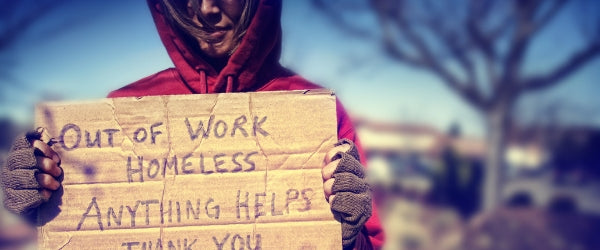Christ died to make things right, to make them as they should be. Restored. When we participate in God's restorational justice, we begin to realize that the Gospel is much bigger than any weekend service project.
The Hebrew word for “justice” is tsedaqah, which means “the kind of justice that delivers from slavery and oppression and restores community relationships.”
Justice is most often paired with righteousness in the Old Testament. The Hebrew word for “righteousness” is misphat and means “the deliverance of justice that restores community relationships.”
The text note in Psalm 4:1 of the NIV says this: “Often the righteousness of God in the OT refers to the faithfulness with which God acts. This faithfulness is in full accordance with his commitments to his people and with his status as divine King—to whom the powerless may look for protection, the oppressed for redress and the needy for help.”
The combination of justice and righteousness is a strong thread that winds through the story of God and his people. It is a foundational ethos of God’s kingdom citizens and ushers in the Abrahamic covenant and Jesus’ reiterated call to his followers. Therefore, justice and righteousness are aspects of the gospel–the Good News that Jesus as Lord and Savior delivers to us and enlists us to, for the sake of the world that God so loves.
In the Gospels, Jesus reminds us that our struggles with individualism, consumerism, and materialism are, as the Justice Primer highlights, “all barriers to the kingdom; thus, all barriers to justice.”
What is it that keeps us focused on "Me"?
These things keep our hearts paralyzed from participating fully in our call as followers of Jesus to be deliverers of the kind of justice and righteousness that restores community relationships: human to God and human to one another.
When we do justice, our hearts are aligned with the truth of the gospel. The gospel moves us from a ministry of relief to a ministry of restoration, from a “service project” to a new way of living, from the heart of mercy to desire for true justice…Mercy offers compassion and relief. Justice offers an advocate and action. ~Brandon Hatmaker. The Justice Primer
Tim Keller has written, “The Gospel…is not just about individual happiness and fulfillment. It is not just a wonderful plan for my life, but a wonderful plan for the world. It is about the coming of God’s kingdom to renew everything. Gospel-centered churches do not only urge individuals to be converted, but also to seek peace and justice in our cities and in our world.”
What does this search for justice look like, right where we live... in our day-to-day lives as a community?
God calls us to reorient our lives around mercy and justice, around being healers of the world. This is not a project, but—as the Justice Primer continually points out—a transformed heart that desires good news to be good news both now and into eternity for humanity.
Jesus describes His followers as the “light of the world,” those who participate in acts of righteousness that deliver the kind of justice that reveals our 'Go': our God who loves the world he created so much he gave his son Jesus to usher in his kingdom where peace and justice prevail.
Hatmaker notes in The Justice Primer:
True mercy changes judgment to humility
True mercy changes sympathy to action
True mercy changes our kingdom to God’s Kingdom
True mercy changes selfishness to selflessness
True mercy changes doubt to faith
As we engage our neighborhoods and our communities, may we be ever mindful of the big gospel that Jesus our Lord teaches. We ourselves discover our lives in Christ when we lay them down for the least of these.
To help your small group, community or church learn to love mercy and do justice, together, check out: The Justice Primer: An 8-Week Guide to Serving Through Community
Excerpts of this post were originally published by CBWC/Growing With You: https://churchplantingatcbwc.wordpress.com/tag/justice-primer



